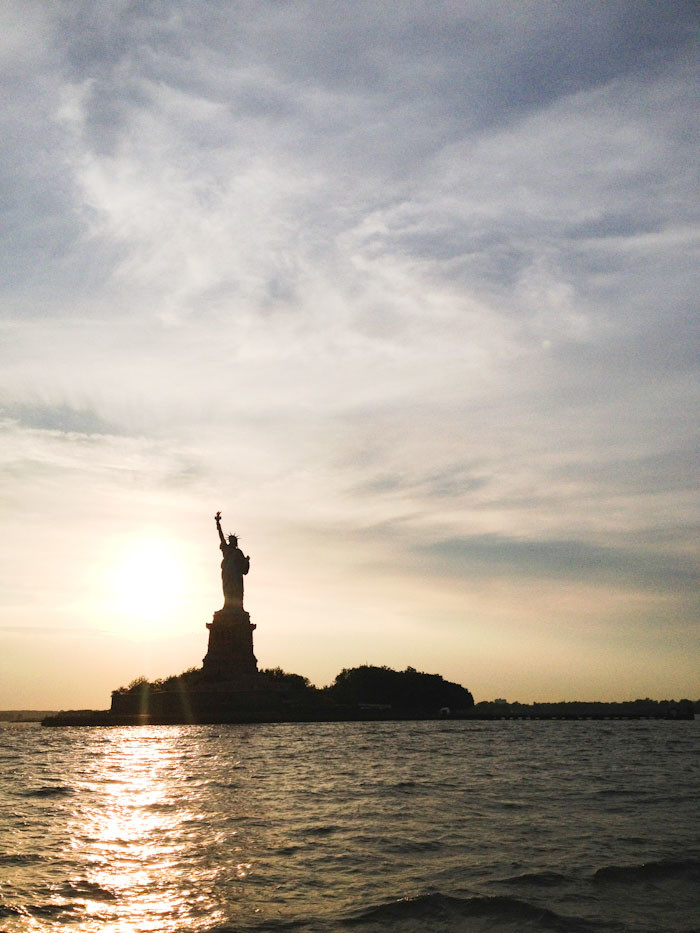
Whenever the stories about what principles we as Americans hold dear to seem to be shifting, I like to re-read Emma Lazarus’s sonnet, The New Colossus, the last lines of which are famously inscribed on The Statue of Liberty:
Not like the brazen giant of Greek fame,
With conquering limbs astride from land to land;
Here at our sea-washed, sunset gates shall stand
A mighty woman with a torch, whose flame
Is the imprisoned lightning, and her name
Mother of Exiles. From her beacon-hand
Glows world-wide welcome; her mild eyes command
The air-bridged harbor that twin cities frame.
“Keep ancient lands, your storied pomp!” cries she
With silent lips. “Give me your tired, your poor,
Your huddled masses yearning to breathe free,
The wretched refuse of your teeming shore.
Send these, the homeless, tempest-tost to me,
I lift my lamp beside the golden door!”
It’s beautiful, isn’t it? “A mighty woman with a torch…Her mild eyes command”: with unwavering tenderness, she beacons that all are welcome.
Lazarus drew some of her inspiration from her work with refugees on Ward Island in New York Harbor. It makes me wonder what poetry might come out of these darker days.
We were traveling at the end of last week—escaping to Fantasyland—so I didn’t get to put out a Friday links post. There’s so much to read right now, and no doubt everyone is inundated with links on Facebook and Twitter and elsewhere, but here are some of the things that have been notable to me—mostly politically, but a few otherwise.
First, related: What are the advantages of a sonnet, as a form of poetry?
Last March, the US Holocaust Museum marked the 4th anniversary of the Syrian conflict with a reminder of how the world vowed “never again” to the threat of genocide. “The Syrian conflict has become the largest humanitarian emergency the world has seen since World War II.”
The National Museum of African American History and Culture opened to the public on September 24, 2016, as the 19th and newest museum of the Smithsonian Institution. I look forward to visiting one day. For now, their blog has already been edifying with a post on why we march, using details of a 1941-march that never happened.
Trevor Noah ties the women’s march to the female freedom fighters during apartheid in South Africa: “You strike a woman, you strike a rock.”
(A reminder that I’d like to read his book, Born a Crime, which has received rave reviews.)
A new book on chasing the slow life.
NPR reported on Nigeria girls who have been kidnapped and married to Boko Haram fighters and it’s so devastating. Photojournalist Stephanie Sinclair talks about her project Too Young To Wed, and it makes one think about the ways “child bride” is a euphemism that obscures phrases like human traffic and rape.
Two of my favorite of the dozens of articles I’ve read repudiating Trump this week (boy, it’s hard to limit myself) are from a conservative former advisor to Secretary Rice and this one from NYT Op-Ed columnist Maureen Dowd that posits “The fact that the press corps is captive in the White House and can be dragged into these executive order signings is, for him, like mainlining heroin.”
And one that features John McCain’s and other GOP leader’s reactions to his immigration policy.
An alternative White House correspondent’s dinner I’ll be watching.
Do you want to run for office? Think globally, act locally.
Tracking Trump’s promises the first 100 days (whether you like them or not).
Also, a tweet tracker with context and fact-checking.
And NPR’s new series, “this week in ‘alternative facts.'”
“Stone-cold crazy”: A political advisor associated with white supremacy movements is promoted “to a status alongside the secretaries of state and defense, and over the president’s top military and intelligence advisers.”
In light of the travel ban, a look at what vetting procedures were already in place. Also, the number of refugees likely affected.
And The Science of Us looks at what the protests says about human complexity.
Pledging to “hunt monsters” at the SAG awards.
A Google plugin to remove qualifiers from emails. #Sorrynotsorry
Sweet lessons from a first year with a baby.
Finally, I appreciated this defense of writing about politics on blogs not previously heavy on the topic: “But I hope you understand, given the extraordinary circumstances of this administration, that it has started to feel disingenuous, almost irresponsible to write only about pork chops and apple pies without acknowledging a conversation that started 18 months ago at our dinner table (and overlapped with many of the topics I hit on above) and shows no sign of stopping.” Thank you, Jenny.
P.S. We took the above photo when we lived in New York on a sailing date; I think it was the closest I came to the statue. We also celebrated Manhattan’s 400th birthday while we lived there, something I associate with another favorite quote.






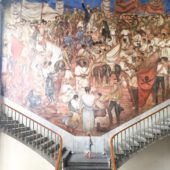






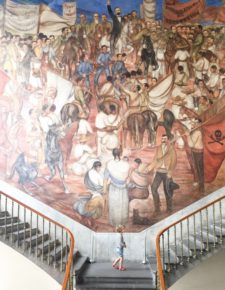





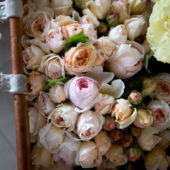




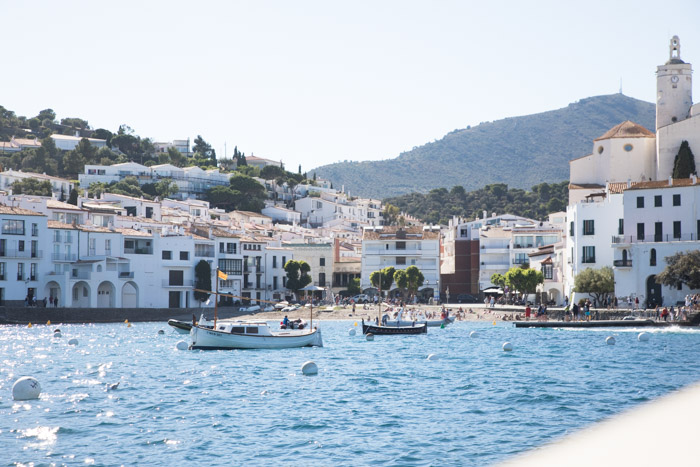

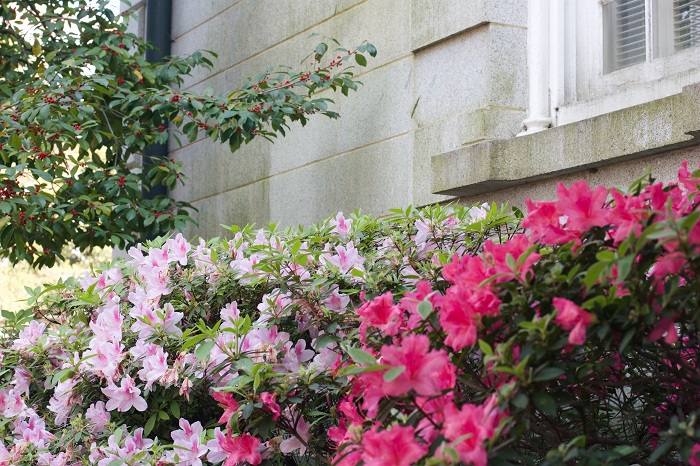











30 Comments